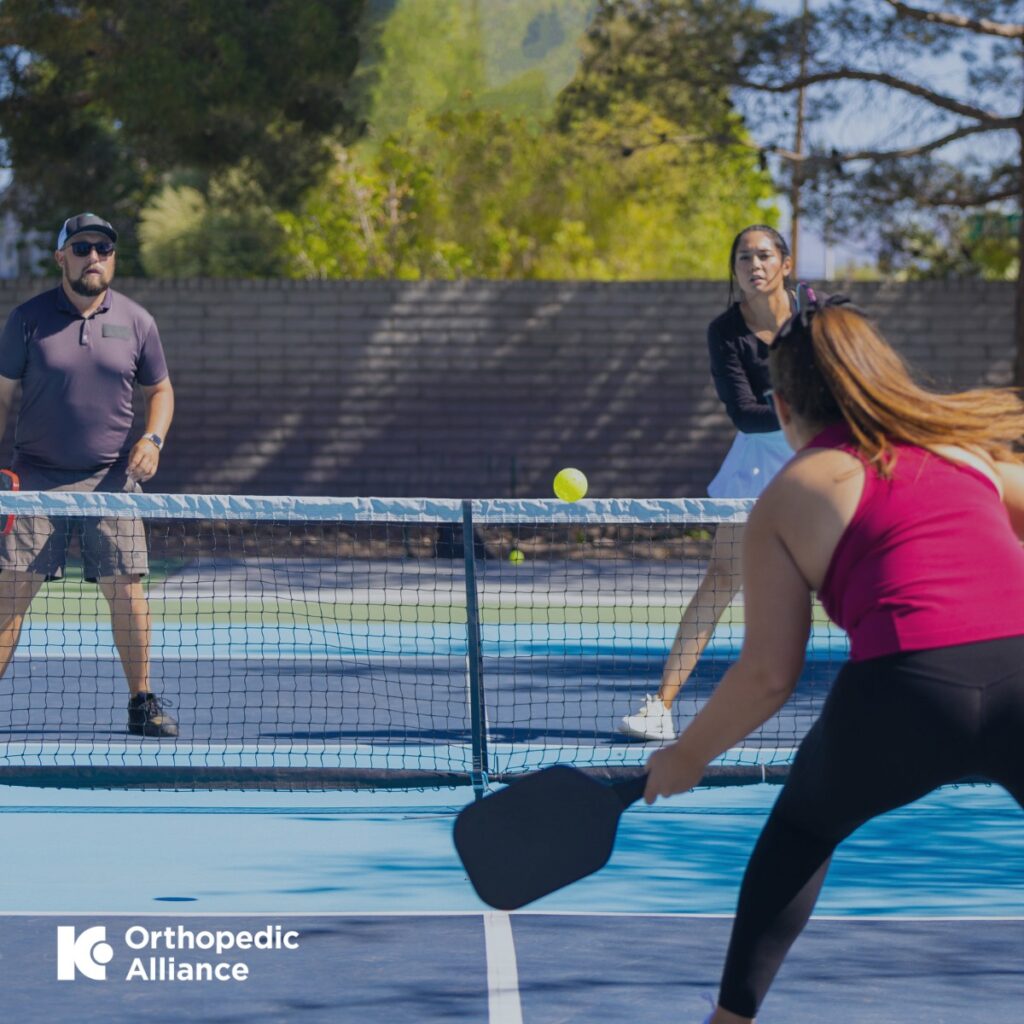 When you hear about orthopedic injuries and conditions such as a torn ACL or tennis elbow, you probably think of competitive athletes. True, these are common sports injuries—commonly treated by sports medicine physicians—but these types of injuries can actually happen to anyone.
When you hear about orthopedic injuries and conditions such as a torn ACL or tennis elbow, you probably think of competitive athletes. True, these are common sports injuries—commonly treated by sports medicine physicians—but these types of injuries can actually happen to anyone.
It makes sense, then, that orthopedic doctors who specialize in sports medicine treat people of all ages and fitness levels. So whether that sprain, tear or broken bone was the result of a football tackle or a fall on the stairs, our sports medicine physicians can effectively diagnose and treat it.
As explained by the American Medical Society for Sports Medicine, sports medicine physicians have specialized training in the treatment and prevention of illness and injury, helping patients maximize function and minimize disability and time away from sports, work or school. In other words, it doesn’t matter whether your musculoskeletal injury happens on or off a playing field, a physician who knows how to treat sports injuries can provide you with excellent care.
Let’s take a look at a few common orthopedic sports injuries that can also occur during normal physical activity in everyday life:
Sprained or Torn ACL
When it comes to leg and knee injuries, sprained or torn ACLs are very common. The anterior cruciate ligament is a ligament that runs from the femur to the tibia and helps stabilize and move the knee. When a person lands incorrectly or changes direction suddenly (as happens frequently in sports such as football, basketball and soccer), it can put pressure on the ACL and cause the ligament to tear or rupture. But sports mishaps aren’t the only things that lead to these types of injuries – unintentional falls or blows to the knee can also cause them.
Treatment for ACL injuries varies depending on the severity of the damage. Options may include physical therapy, anti-inflammatories, braces or orthopedic surgery.
Torn Meniscus
The meniscus is a shock-absorbing piece of cartilage between the thighbone and shinbone. Each knee has two menisci. Meniscus tears are often associated with other knee conditions, including ACL and medial collateral ligament (MCL) injuries. When a person turns too quickly, the knee can twist, resulting in a torn meniscus and knee pain.
Although meniscus tears are common in athletes who play contact sports, non-athletes are at risk as well, especially older adults whose knee cartilage has weakened over time. Worn menisci are more prone to tears, and even a simple act such as standing up awkwardly could cause injury.
Depending on the extent of the tear, nonsurgical treatment such as physical therapy or anti-inflammatory medication may be an option. In some cases, arthroscopy may be needed to fully repair the damage. If left untreated, the meniscus can become unstable, which can cause the knee to slip, pop or lock.
Tennis Elbow
As the name implies, tennis elbow is an overuse injury commonly seen in tennis and other racquet sports. However, it can affect everyone from plumbers to carpenters, auto workers to cooks, and anyone else whose job or daily activities require repetitive motion involving the elbow. When the tendons connecting the forearm muscles to the elbow become damaged and inflamed due to repetitive motion, individuals can experience elbow pain and tenderness.
Most patients with tennis elbow respond well to nonsurgical treatments. Orthopedic surgery might be necessary if conservative treatments do not provide relief.
Specialized Care for Athletes and Non-Athletes
Sports medicine physicians are familiar with a particular sport’s demands and have specialized skills and knowledge to get athletes back in the game. But they also can help you get back to the activities you love, no matter your age or activity level. At Dickson-Diveley Orthopaedics, nearly all of our physicians treat a mix of athletes and non-athletes of all ages.
For more information or to schedule an appointment, please call us at 913-319-7600.
***
The medical information contained in the Dickson-Diveley Orthopaedics website is provided to increase your knowledge and understanding of orthopedic conditions. This information should not be interpreted as a recommendation for a specific medical or surgical treatment plan. As each patient may have specific symptoms or associated problems, the treatment regimen for a specific patient may not be the proper treatment for another.
Gaining knowledge and understanding of a particular problem or condition is the first step in any medical treatment plan. We believe the information presented on our website will be helpful for those individuals experiencing hand and wrist diseases, injuries, or other related problems. However, this information is not intended to replace the advice of your family physician. You are encouraged to consult with your physician to discuss any course of treatment presented or suggested.


